Mr. Nguyen Anh Duong, Head of the General Research Department (Central Institute for Economic Management - CIEM) hopes that Vietnamese enterprises will maintain a positive attitude, act quickly enough, with appropriate business strategies to adapt to new races, take advantage of incentives from FTAs to further export.
Mr. Nguyen Anh Duong, Head of the General Research Department (Central Institute for Economic Management - CIEM) hopes that Vietnamese enterprises will maintain a positive attitude, act quickly enough, with appropriate business strategies to adapt to new races, take advantage of incentives from FTAs to further export.
 |
| Mr. Nguyen Anh Duong, Head of the General Research Department (Central Institute for Economic Management - CIEM) |
FTA NETWORK POSITIVELY IMPACT ON EXPORTS
For the first time, Vietnam's foreign trade reached 800 billion USD, of which exports were about 403 billion USD, with a trade surplus of 23 billion USD. How do you comment on these figures?
After the decline in import-export activities in 2023, Vietnam faces many challenges in promoting export growth in 2024. That challenge is even more complicated in the context of the world economy in 2024 having many unfavorable factors, including complicated conflicts in many regions, trade tensions, and a trend of tightening monetary policy for a longer period than expected in the US and some developed countries...
In that context, Vietnam's import-export results are very positive, with both domestic enterprises and foreign direct investment (FDI) enterprises growing. Notably, the domestic enterprise sector achieved a growth rate of up to 19.8% in the 11 months of 2024 (compared to the same period in 2023), higher than the FDI sector with a corresponding increase of 12.6%. This shows that although FDI enterprises still account for a large proportion of exports, domestic enterprises have made efforts to overcome difficulties and adapt to new market trends.
The trade surplus for the whole year of 2024 could reach 23 billion USD. Along with the increase in FDI capital inflows, the trade surplus has contributed to creating macroeconomic stability, thereby promoting economic growth in 2024 and the following years.
The mark of international economic integration in the past year cannot fail to mention the event of Vietnam - UAE signing the Comprehensive Economic Partnership Agreement (CEPA), bringing the total number of signed FTAs of our country to 17. What is your assessment of the efforts of the Government, ministries and branches in negotiating and signing FTAs, supporting economic development and institutional reform?
The year 2024 has witnessed Vietnam’s significant efforts in negotiating and signing FTAs, of which CEPA is a typical example. CEPA can help open the door for Vietnam’s Halal products (products that meet the requirements of the Muslim market) to penetrate the UAE market. In addition, we also need to recognize the importance of the National Assembly passing the Resolution approving the document on the UK’s accession to the Comprehensive and Progressive Agreement for Trans-Pacific Partnership (CPTPP) in June 2024.
The FTA network has provided businesses operating in Vietnam, including FDI enterprises, with more opportunities and options to increase exports, thereby contributing to the “three-horse carriage” for economic growth. Thanks to that, Vietnam has also attracted the attention of foreign investors, in the context of their need to diversify production locations to minimize the impact of trade-technology wars, supply chain disruptions, etc.
 |
| Improving quality and taking advantage of incentives from FTAs will help Vietnamese goods maintain their export markets. Photo: Duc Thanh |
INVESTING IN QUALITY IS A WISE CHOICE
Currently, many countries in the region are also negotiating FTAs with the EU, Canada, etc., which means that Vietnamese goods will have to compete more fiercely in markets where we are still considered to have advantages thanks to FTAs. How can we maintain the advantage of being a “first mover”, sir?
FTAs can bring many advantages to businesses, including advantages from preferential tariffs. When talking with businesses, I often emphasize that the advantages maintained in the short or long term depend mainly on the approach of the business.
If businesses only focus on exploiting the advantage of price competition when enjoying preferential tariffs in FTA partner markets, although they benefit immediately, they may face long-term risks when this market raises product quality standards or adds non-tariff regulations, or has more suppliers in the same segment.
Therefore, the wise way is to increase investment in the quality of goods to meet higher standards, to sell at prices equivalent to those before the preferential tariffs. By doing so, businesses will turn the advantage of "first mover thanks to early FTA" into the long-term advantage of "first mover thanks to higher quality standards".
Exports are accelerating, but the FDI sector still accounts for 73% and is still dependent on a few large markets. Clearly, solutions are needed to promote the growth of the domestic sector. In your opinion, what inherent bottlenecks need to be cleared so that domestic enterprises can make a faster breakthrough?
Over the years, Vietnam has had many programs and initiatives to promote the participation of domestic enterprises in global and regional value chains. Typically, the Ministry of Industry and Trade and Samsung Vietnam have coordinated to implement projects to support and enhance the capacity of Vietnamese enterprises since 2015, thereby significantly increasing the number of Tier 1 and Tier 2 suppliers.
However, Vietnam needs strong and focused solutions to help Vietnamese enterprises rise up to take on higher value-added activities in the global and regional value chains. In my opinion, there are three solutions needed.
Firstly, promptly concretize the national industrial policy and organize its effective implementation, thereby helping to strengthen the production and export capacity of domestic enterprises, encourage the development of supporting industries and improve product quality.
Second, focus on building strong national brands, associated with product diversification, regular innovation to increase attractiveness and adapt to new trends (digital transformation, green transformation). The State creates a favorable environment and supports businesses to register trademarks in the international market to avoid being registered by foreign businesses first. Boldly building a legal framework for testing new business models (circular economy) will also help to stimulate the entrepreneurial spirit of businesses.
Third, agencies and localities need to proactively "catalyze" healthy cooperative relationships between foreign-invested enterprises and domestic enterprises.
You once commented that, along with the increasing export scale, the core problem is to improve quality. Currently, when major import markets continue to raise standards for imported goods, with high requirements for circular economy, emission reduction, production technology, etc., are you worried that Vietnamese enterprises will be "drowned" in this race?
Founder and Chairman of the World Economic Forum (WEF), Mr. Klaus Martin Schwab once commented: “In the new world, it is not the big fish that eats the small fish, but the fast fish that eats the slow fish”. I strongly agree with this comment.
For businesses, competition and adaptation to new contexts and requirements are always constant requirements. New trends in sustainable development regulations and emission reduction standards in markets can affect businesses if they do not promptly learn and adjust their business strategies. It should be noted that these trends also affect large businesses, businesses that have invested a lot of capital and/or are exploiting advantages well according to old standards and regulations. Here, I hope that Vietnamese businesses will maintain a positive mindset, act quickly enough, with appropriate business strategies to adapt to the new race.
Many industries and businesses are concerned that exports to major markets, especially the US, will be more difficult in 2025 and the coming years due to trade defense measures. Sir, in the context that many of our industries have large export turnover, but Vietnam's participation rate in the value chain is low, how can we "avoid" trade defense measures and maintain sustainable exports?
The year 2025 is forecasted to have many difficulties and challenges from the international market, including different scenarios related to the use of import tax tools in the US, policy adjustments in other key markets, etc. However, there are also many opportunities for exports. If we continue to create opportunities for businesses to exploit new markets, niche markets (through FTAs) combined with strong solutions to improve the investment and business environment, reduce unnecessary costs for businesses, Vietnam can confidently aim for double-digit export growth in 2025.
To improve export quality, I think we need to consider some requirements and directions.
Firstly, continue to monitor, evaluate and forecast the demand of import markets, along with new regulations and regulations about to take effect that may affect imported goods from Vietnam. On that basis, update information and guide businesses to develop appropriate and timely response plans.
Second, facilitate production and business activities in particular and export activities in general. Review, evaluate and improve legal and infrastructure conditions to facilitate trade.
Third, quickly concretize new thinking and initiatives related to exports such as free trade zones, digital transformation in the logistics sector...; improve the export capacity of enterprises.
Fourth, regularly exchange and dialogue with partners to strengthen trust and enhance cooperation to promote transparent and less disruptive trade activities on the basis of harmonizing interests between parties.
Source: https://baodautu.vn/doanh-nghiep-hay-giu-tam-the-tich-cuc-hanh-dong-du-nhanh-d237530.html


![[Photo] Prime Minister Pham Minh Chinh chairs the Government's special meeting on law-making in April](https://vstatic.vietnam.vn/vietnam/resource/IMAGE/2025/4/13/8b2071d47adc4c22ac3a9534d12ddc17)



![[Photo] National Assembly Chairman Tran Thanh Man attends the ceremony to celebrate the 1015th anniversary of King Ly Thai To's coronation](https://vstatic.vietnam.vn/vietnam/resource/IMAGE/2025/4/13/6d642c7b8ab34ccc8c769a9ebc02346b)
![[Photo] National Assembly Chairman Tran Thanh Man attends the Policy Forum on Science, Technology, Innovation and Digital Transformation](https://vstatic.vietnam.vn/vietnam/resource/IMAGE/2025/4/13/c0aec4d2b3ee45adb4c2a769796be1fd)
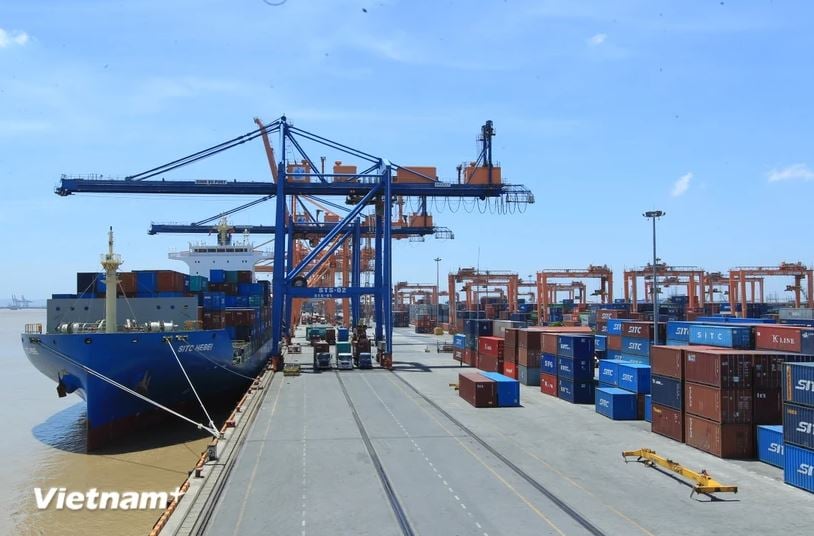
























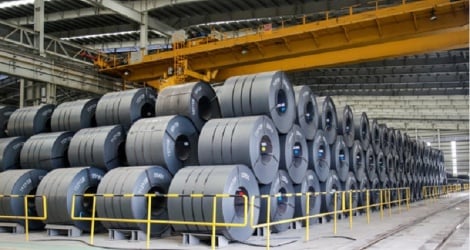
































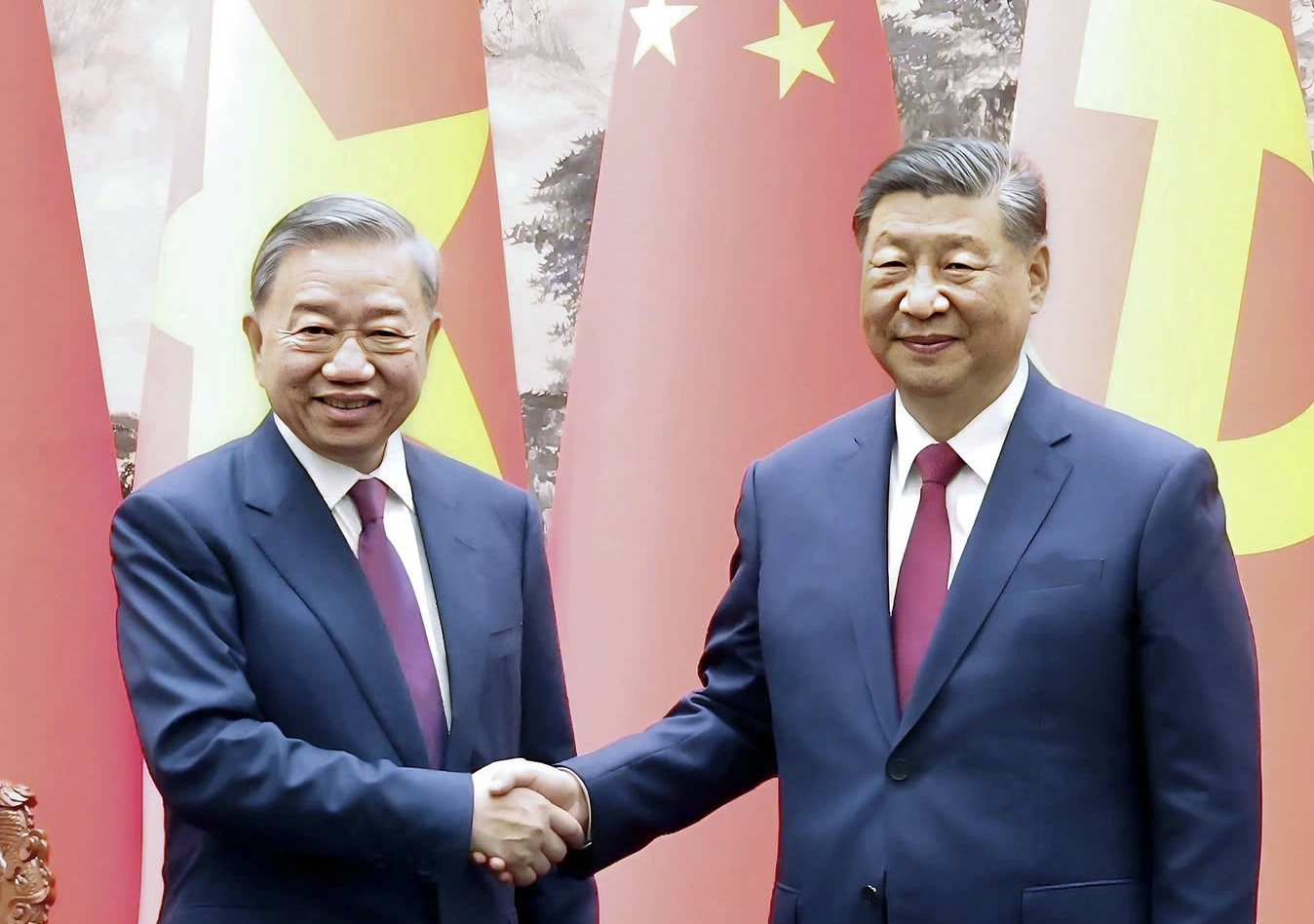







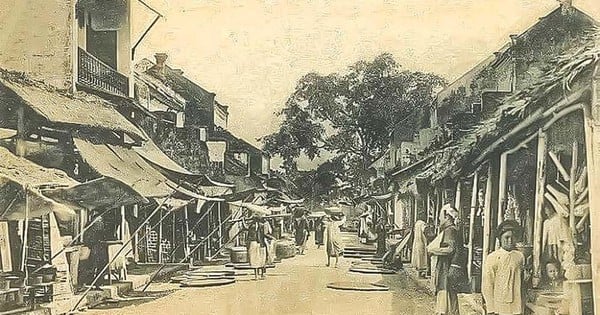



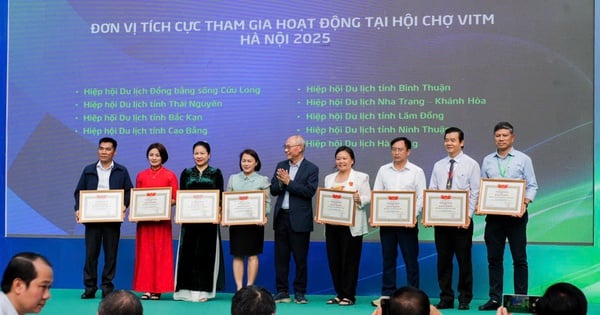







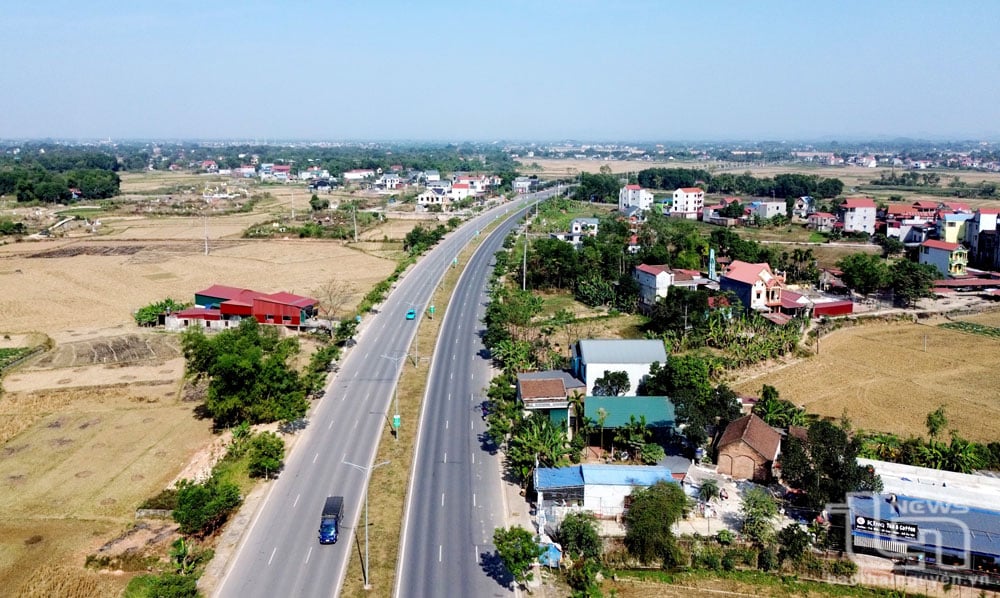

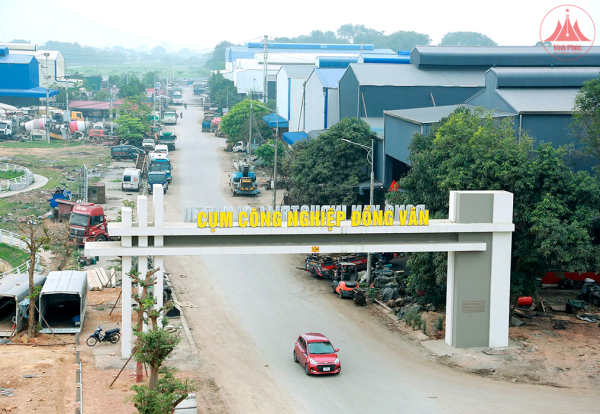

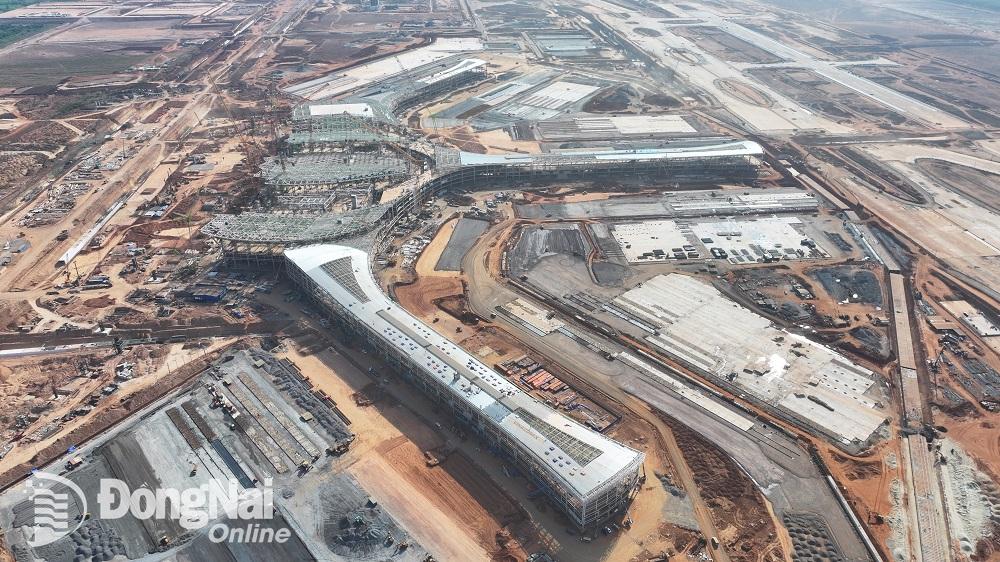













Comment (0)